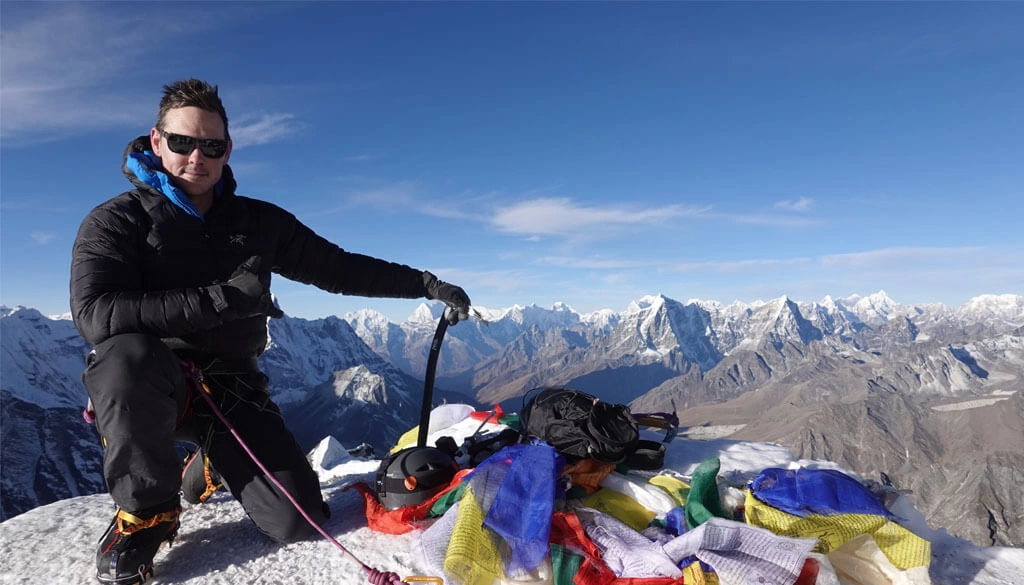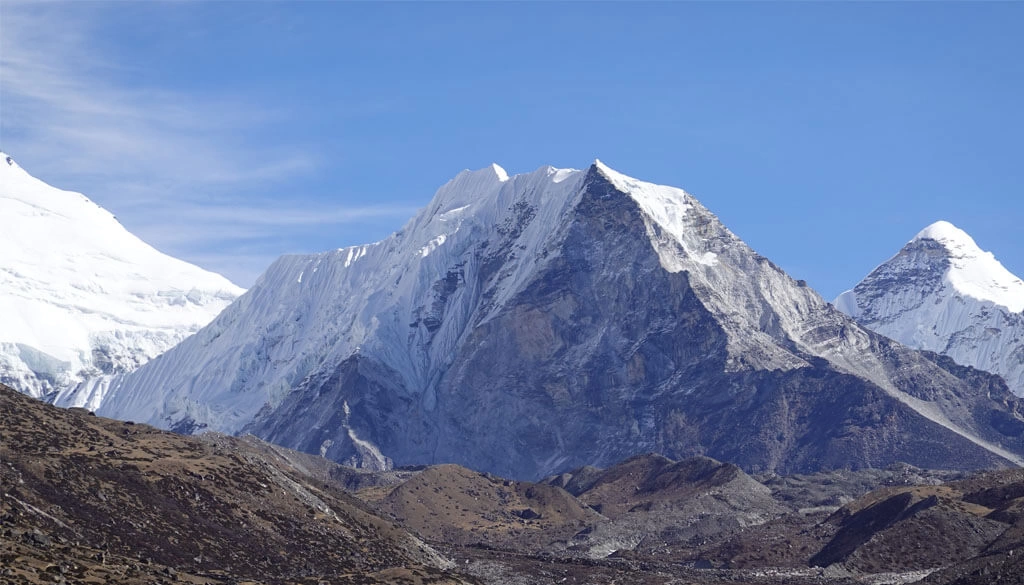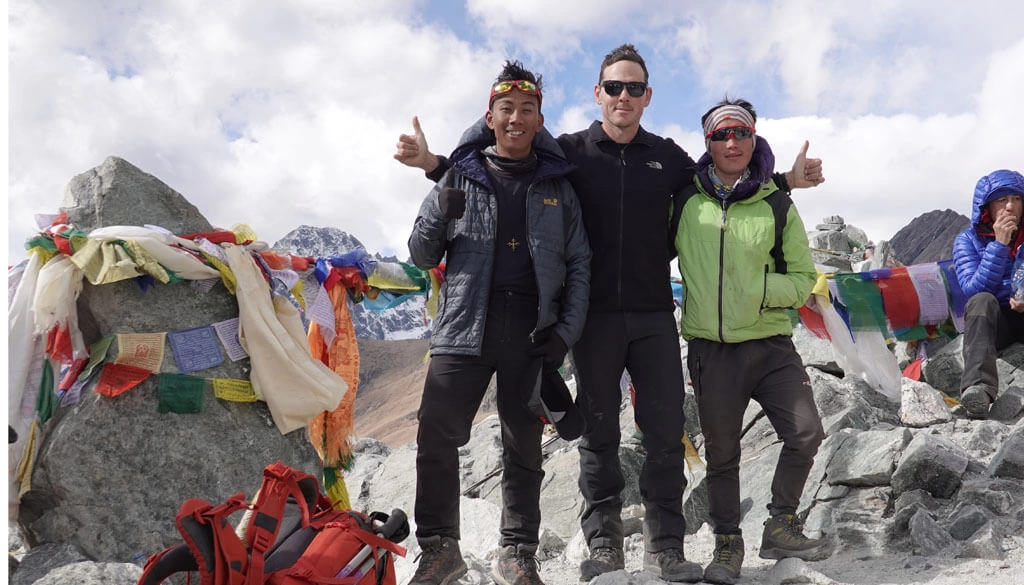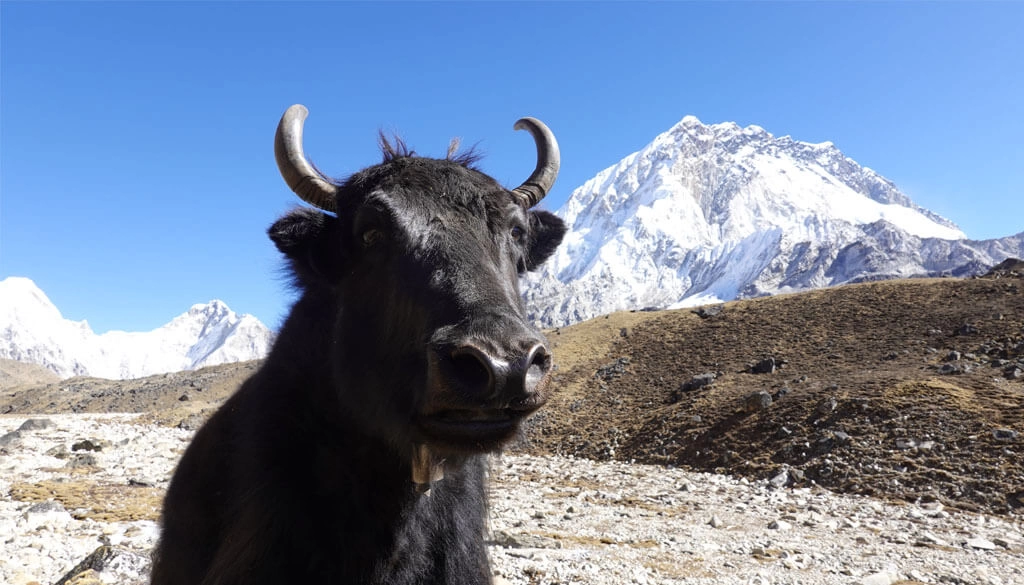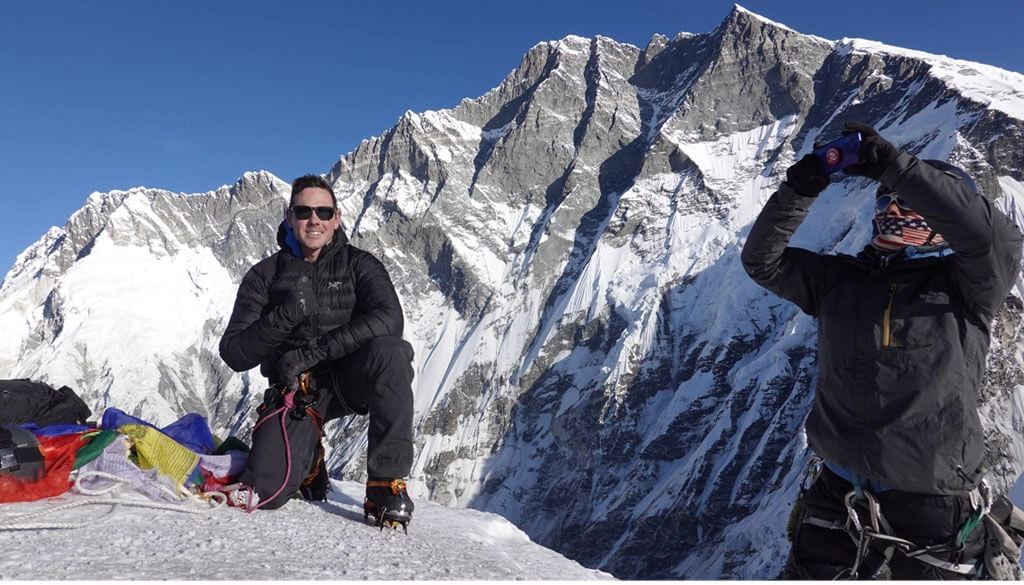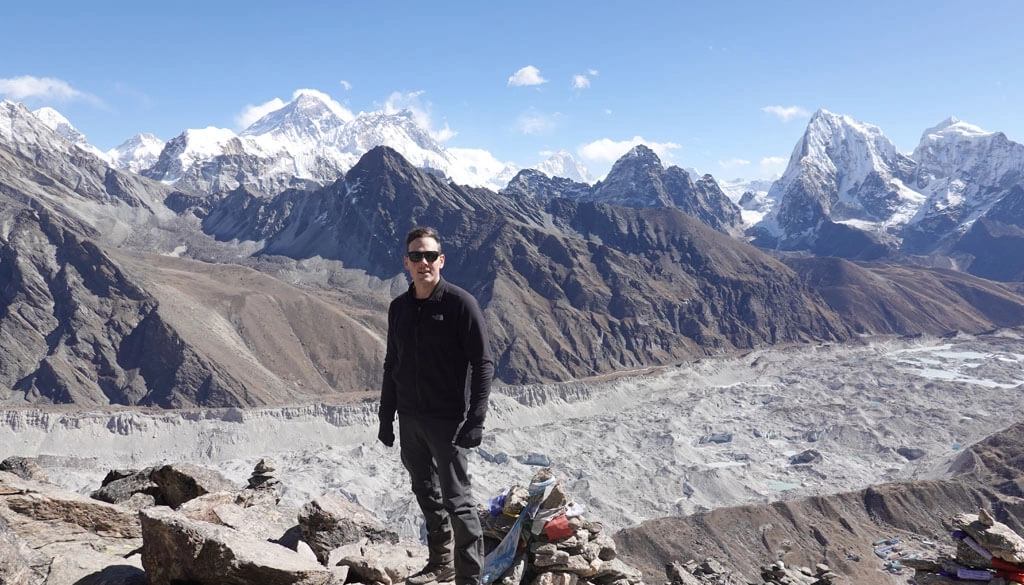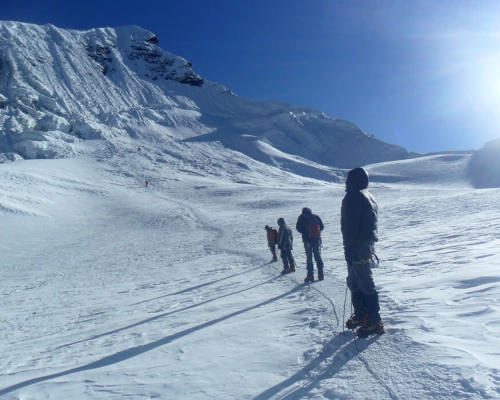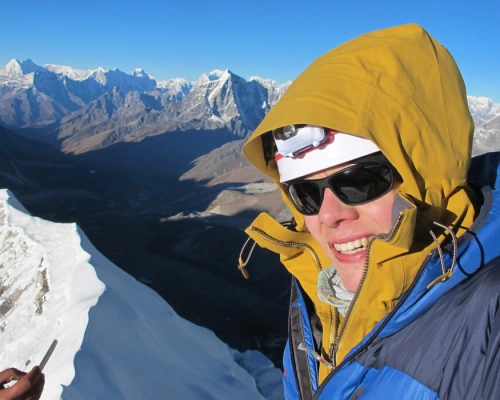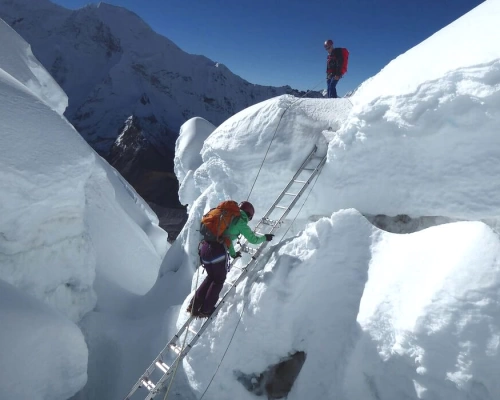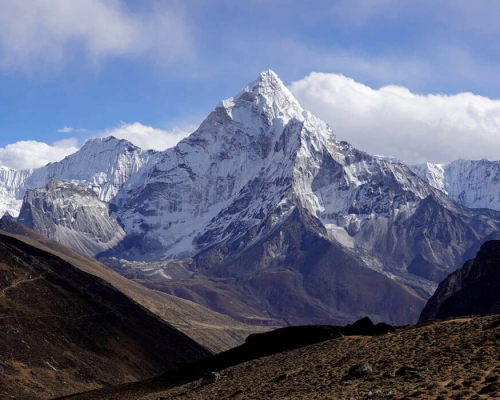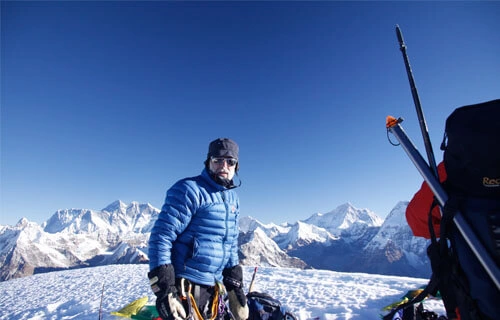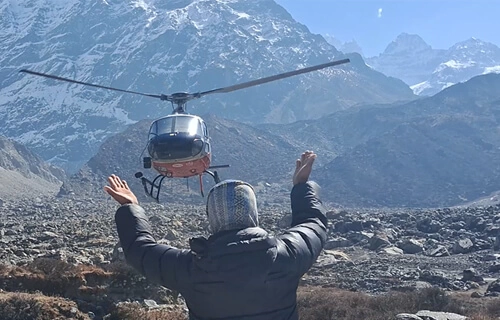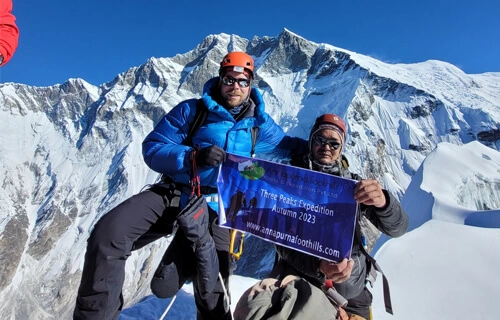About Gokyo Cho La Pass Island Peak Climbing
Climbing Island Peak through the Gokyo Valley is an amazing way to experience the Khumbu region of Nepal. The trek is challenging but rewarding, and the views from the summit of Island Peak are simply stunning. The trek begins in Namche Bazaar, and from there, it follows the Dudh Koshi River to the Gokyo Valley. The Gokyo Valley is home to several beautiful lakes, including Gokyo Ri, which offers stunning views of the surrounding mountains.
After spending a few days in the Gokyo Valley, the trek crosses Cho La Pass, which is at an altitude of 5,420 meters. From Cho La Pass, there are panoramic views of the Everest massif, including Mount Everest, Lhotse, and Makalu. The final section of the trek leads to Island Peak Base Camp, which is at an altitude of 5,100 meters. From Base Camp, there is a short climb to the summit of Island Peak, which is at an altitude of 6,189 meters.
Gokyo Cho La Pass Island Peak Climbing Route
The Gokyo Cho la Island Peak Route is a challenging trek that takes you through some of the most stunning scenery in the Everest region. The route begins in Kathmandu, where you will spend a few days acclimatizing and preparing for the trek. You will then fly to Lukla, the gateway to the Everest region, and begin your trek to Namche Bazar. From Namche Bazar, you will continue to Gokyo Lakes, where you will have the opportunity to ascend Gokyo Ri for stunning views of the surrounding peaks. You will then cross Cho La Pass, a challenging pass at 5,420 meters, and descend to Dzongla. From Dzongla, you will follow the trail to Island Base Camp, where you will acclimatize for a few days before attempting the summit of Island Peak. After summiting Island Peak, you will return to Island Base Camp and then backtrack to Namche Bazar and Lukla. You will then fly back to Kathmandu, where your journey will end.
The Best Season for Gokyo Cho La Pass and Island Peak Climbing
The best seasons for Island Peak Climbing are spring (March to May) and autumn (September to November). The weather is generally good during these seasons, and there is less chance of snow and rain. However, the winter is also a great time to climb if you are well prepared for the cold weather. In the crisp and cold month of December, the views of the mountains are crystal clear and there are fewer trekkers around.
Why choose Annapurna Foothills for your Gokyo Cho La Island Peak Climbing?
We are a Nepal-based local operator with extensive experience in the Himalayas. Our Sherpa trekking guides are highly experienced, competent, and professional. We place a strong emphasis on safety and quality. We use top-notch equipment and logistics, and we have a strict safety protocol in place. We are dedicated to operating eco-friendly trips, adhering to the principles of Leave No Trace, and contributing to ethical and responsible tourism.
We are an eco-friendly trekking company. We are committed to preserving and protecting the environment. We offer excellent value for your investment. We provide top-notch service at a competitive price—expert guidance and support from our Sherpa trekking guides.
Risk Management
Gokyo Cho La Island Peak Climbing is a challenging but rewarding experience. However, it is essential to be aware of the risks involved. Annapurna Foothills Treks, we understand the risks and have taken steps to mitigate them. Our team of expert Sherpa guides is highly experienced and qualified. They have extensive knowledge of the Everest region and are skilled in dealing with potential hazards. We also have reliable emergency communication systems in place and well-structured evacuation plans. We place safety above all else and are committed to keeping you safe throughout your journey. Taking the necessary precautions can help you have a safe and enjoyable climb.
Equipment and Gear
We have included in the package as following climbing equipment, Mountaineering Boots, Crampons, Harness, Ice Axe, 2 x Tape slings, 2 x Screwgate Karabiners, Descender / Abseil, Device (Jumar), Prussic Loops, and a Helmet.
